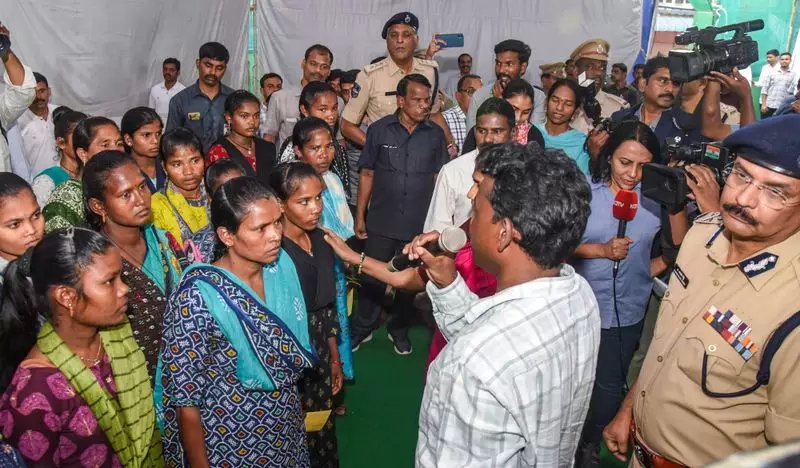
In a significant development for security forces in Telangana, thirty-seven Maoist cadres carrying collective bounties worth ₹1.4 crore have voluntarily surrendered before authorities. The mass surrender represents one of the largest such incidents in recent times and deals a substantial blow to the banned CPI(Maoist) organization's operations in the region.
Key Details of the Surrendered Maoists
The surrender took place in Bhadradri Kothagudem district on Tuesday, where the Maoist cadres laid down their arms before Inspector General of Police (IG) Sanjay Kumar Jain. Among those who surrendered were several important figures within the Maoist hierarchy, including Vetti Bhumaiah, Sudhakar, and Saranga, who were active members of the banned organization's military formations.
The surrendered cadres carried individual rewards ranging from ₹1 lakh to ₹8 lakh each, with the cumulative bounty amount reaching the substantial figure of ₹1.4 crore. This indicates the significance of these individuals within the Maoist organizational structure and the threat they previously posed to security and stability in the region.
Background and Organizational Affiliations
According to police statements, the surrendered Maoists were associated with various important committees and military units of the CPI(Maoist). Many had connections to the North Telangana Special Zonal Committee (NTSZC) and other crucial wings of the banned organization, including the Kistaram Area Committee, Konta Area Committee, and military formations like the PLGA (People's Liberation Guerrilla Army).
Police officials revealed that these individuals had been involved in multiple serious offenses across different police station jurisdictions. Their activities had created significant security challenges in the affected areas, prompting law enforcement to place substantial bounties on their capture.
Strategic Implications and Rehabilitation
The mass surrender represents a major success for Telangana's counter-insurgency operations and reflects the effectiveness of the government's surrender and rehabilitation policy. Security experts suggest that such large-scale surrenders indicate weakening morale within Maoist ranks and growing confidence among cadres in government rehabilitation programs.
Telangana police have emphasized their commitment to ensuring proper rehabilitation for the surrendered Maoists as per existing government policies. The rehabilitation process typically includes financial assistance, vocational training, and support for integration into mainstream society, providing former insurgents with opportunities to rebuild their lives legally and peacefully.
This development comes as part of ongoing efforts by security forces to combat left-wing extremism in the region through a combination of strategic operations and confidence-building measures encouraging Maoists to abandon violence and join the mainstream.





